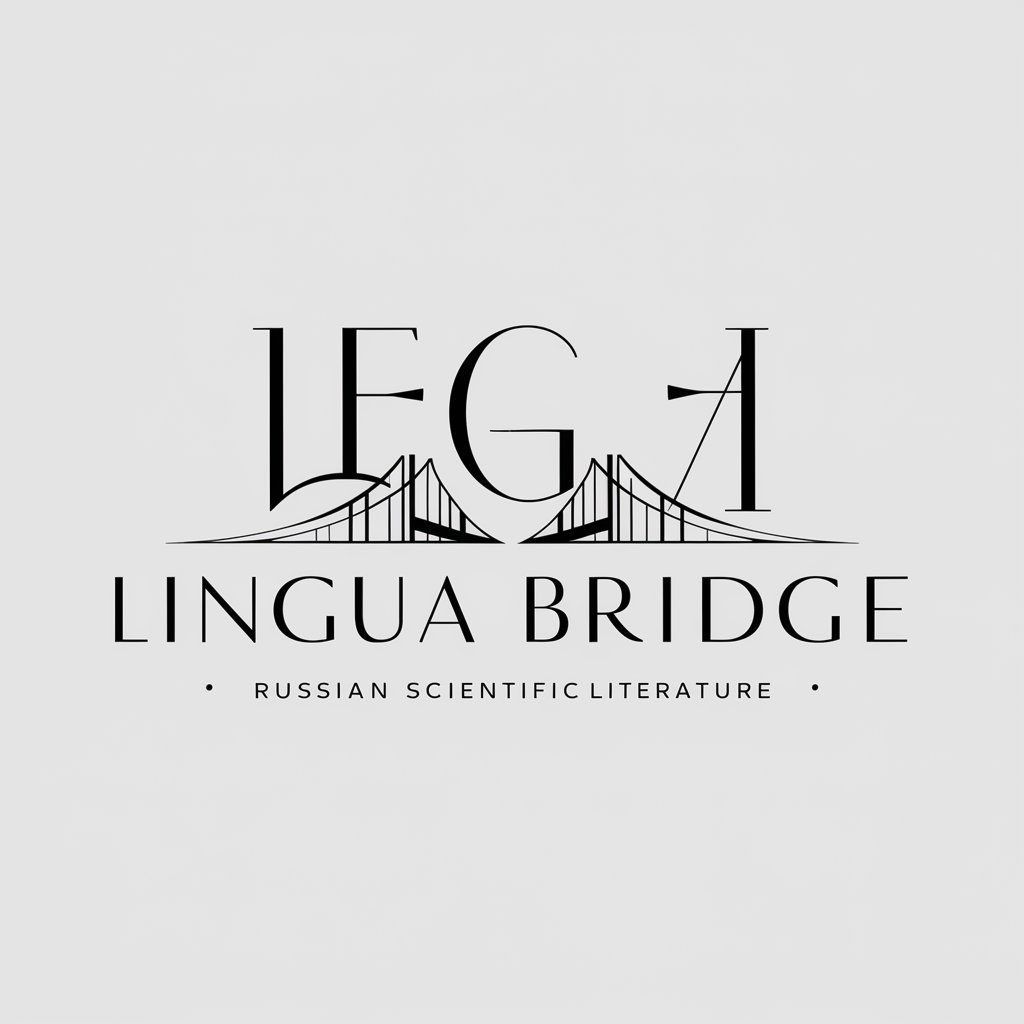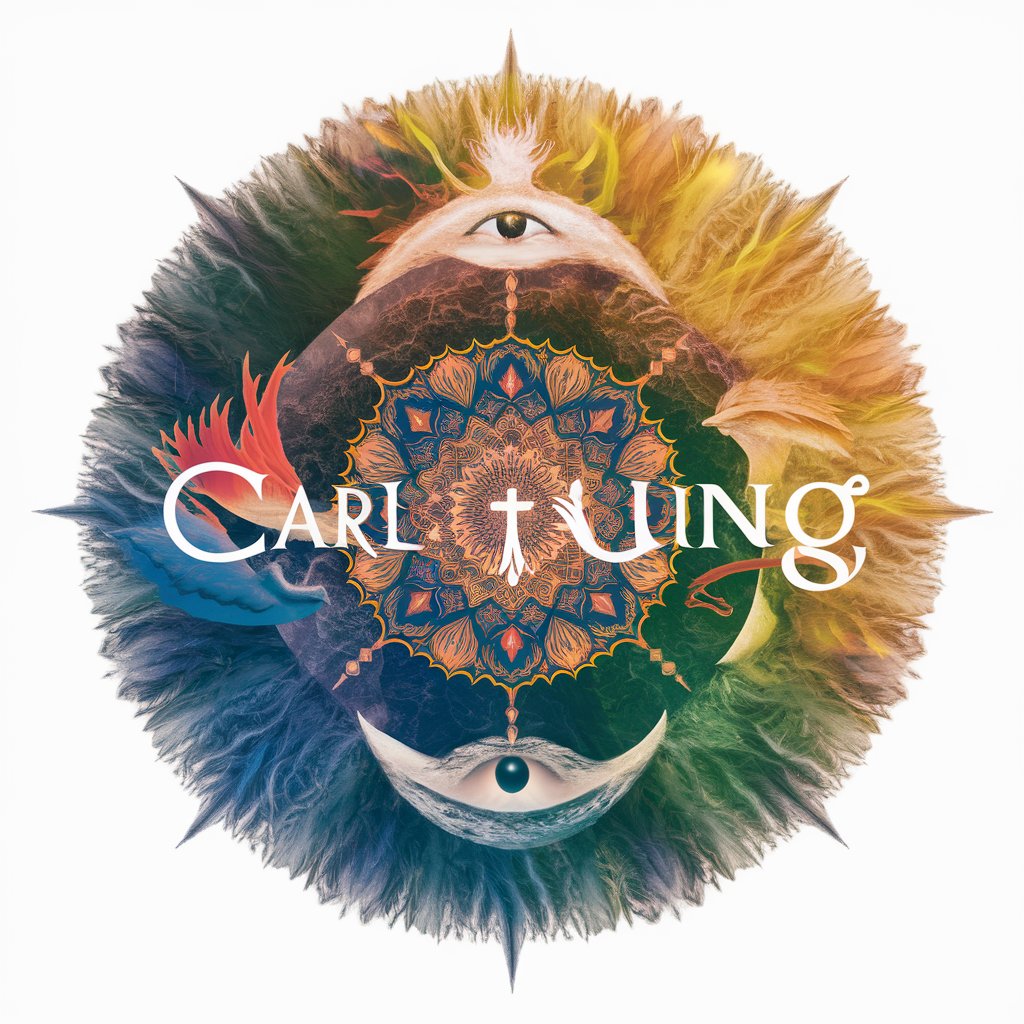Russian-English scientific translator - Precise Scientific Translation

Welcome to Lingua Bridge, your gateway to precise Russian-English scientific translations.
AI-powered precision for scientific translation
Translate this Russian scientific article into concise and clear English:
Summarize the following Russian research paper while maintaining scientific accuracy:
Provide an English translation of this Russian study, focusing on brevity and fidelity to the original text:
Convert this detailed Russian scientific document into an accessible and succinct English version:
Get Embed Code
Overview of Russian-English Scientific Translator
The Russian-English Scientific Translator is a specialized tool designed for the precise and concise translation of Russian scientific literature into English. It is engineered to capture the essence of complex scientific ideas, translating them into clear, straightforward English while maintaining fidelity to the original text's meaning and tone. This translator emphasizes conciseness, ensuring that translations are succinct without adding unnecessary phrases or elaboration. By focusing on formal and accessible translations, it aims to serve as a linguistic bridge between Russian-speaking and English-speaking scientific communities, facilitating the global dissemination of scientific knowledge. Powered by ChatGPT-4o。

Key Functions and Applications
Accurate Translation of Scientific Terminology
Example
Translating technical terms in a physics research paper from Russian to English without altering their scientific precision.
Scenario
A researcher wishes to submit their Russian-written paper to an English-speaking scientific journal. The translator accurately conveys the complex terminology and concepts used in the paper, ensuring that the English-speaking audience fully understands the research findings.
Concise Summarization of Scientific Texts
Example
Distilling a lengthy Russian scientific report into a concise English abstract.
Scenario
An academic conference requires English abstracts for all submissions, including those originally written in Russian. The translator produces a succinct and informative abstract, enabling attendees to grasp the study's objectives and results.
Localization of Scientific Content
Example
Adapting a Russian scientific article's measurements and references for an English-speaking audience.
Scenario
A scientific textbook is being translated for use in English-speaking countries. The translator not only translates the text but also localizes measurement units and contextualizes references, making the content accessible and relevant to the new audience.
Cultural and Contextual Sensitivity
Example
Ensuring that cultural references or idiomatic expressions in Russian scientific literature are appropriately translated into English.
Scenario
In translating a paper on social sciences, the translator navigates cultural references and idiomatic expressions, ensuring they are conveyed in a way that is meaningful and relatable to English-speaking readers.
Target User Groups
Academic Researchers and Scholars
Individuals engaged in cross-disciplinary research who require access to Russian scientific literature in English. This includes those preparing to publish their work in English-speaking journals or attending international conferences.
Scientific Publishers and Journals
Publishing houses and scientific journals that aim to expand their repository by including translated Russian scientific works, making them accessible to a broader audience.
Educational Institutions
Universities and research institutes that incorporate Russian scientific findings into their curriculum or research projects, facilitating cross-cultural academic exchange and collaboration.
Government and Policy Makers
Officials and policy analysts looking to incorporate scientific research and data from Russian sources into policy development, environmental assessments, or public health strategies.

How to Use Russian-English Scientific Translator
1
Visit yeschat.ai to start using the Russian-English scientific translator without the need for a login or ChatGPT Plus subscription.
2
Select the Russian-English translation option from the provided language pairs to ensure the system understands the direction of translation.
3
Paste or type your Russian scientific text into the designated input area. Ensure the text is well-formatted for optimal translation accuracy.
4
Click on the 'Translate' button to process your text. Wait a few moments for the translation to be generated.
5
Review the translated English text. Utilize the 'Edit' or 'Refine' feature, if available, to make adjustments for any specific terminology or context nuances.
Try other advanced and practical GPTs
Tax Guru
Expert tax guidance at your fingertips

Shakespeare v. 2.0 (all characters)
Reviving the Bard's Voice with AI

Chat23J
Deciphering Politics with AI

Trend Tracker
AI-Powered Real-Time Trend Analysis

Affiliate List Builder
Empower Your Affiliate Marketing with AI

Exotic GMbot
Craft Captivating Conversations with AI

Credit Card Guru
Empowering Financial Decisions with AI

BookWorm
Discover your next read with AI

Invest Guru
Empowering Your Investment Journey with AI

Money Guru
Empowering Financial Decisions with AI

Carl JungGPT
Explore Your Psyche with AI-Powered Jungian Wisdom

Alan WattsGPT
Explore Life’s Depths with AI Wisdom

FAQs about Russian-English Scientific Translator
What makes this translator specialized for scientific texts?
This translator is designed with a specific focus on the precise and technical nature of scientific literature, employing specialized vocabulary and syntax understanding to ensure accurate translations.
Can it translate complex scientific terms accurately?
Yes, it incorporates a comprehensive database of scientific terminology and concepts to provide precise translations of complex terms and phrases.
Is there a word limit for translations?
While there may be practical limits for a single translation to ensure performance, the tool is capable of handling extensive texts by segmenting larger documents into manageable parts.
How does it handle different scientific fields?
The translator is equipped to handle a wide range of scientific disciplines by integrating field-specific terminology into its database, ensuring relevance and accuracy across diverse subjects.
Is the translated content kept confidential?
Yes, user privacy and content confidentiality are prioritized, with strong encryption and data handling policies in place to protect your translations.
